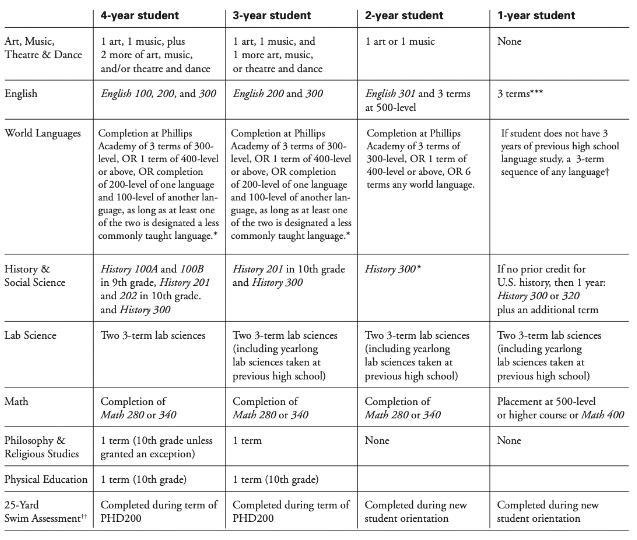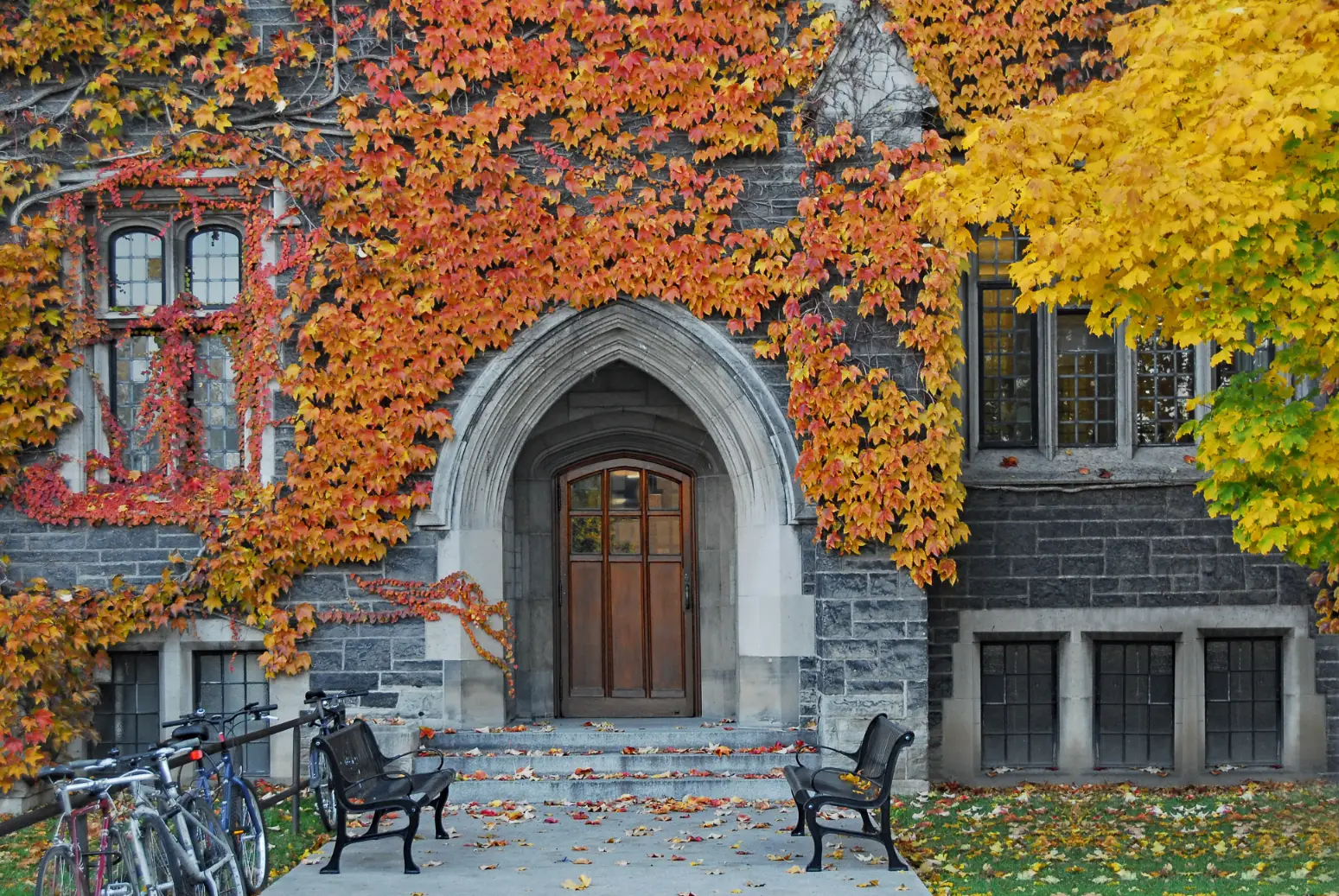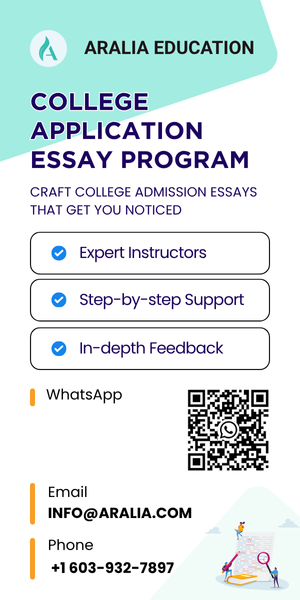American high school curriculum
Before getting into Ivy League requirements, we want you to understand the general curriculum that a typical student takes for high school classes. The curriculum of American high schools is mainly divided into three levels of difficulty: Academic courses, AP courses, and Honors courses. There are six types of academic courses students will encounter:
- English
- Mathematics
- Science
- History and Social Science
- World Language
- Arts
In terms of rigor, academic/regular courses are the foundation, then Advanced/Honors and AP (Advanced Placement) courses. Honors courses emphasize critical and independent thinking, with difficulty being around college level. Students taking honors courses will learn the breadth and depth of the topics covered in the class at a faster learning pace. AP courses allow students to take the final AP exam for college credits. AP Courses are taught according to a syllabus developed by the College Board and provided to American high schools. The difficulty is equivalent to introductory courses at American universities. More information on the American high school curriculum can be found in this article.
What high school classes do Ivy League schools require?
Now that you understand the general requirements of high school courses, what type of classes will give you an advantage in the Ivy League application process?
Harvard University suggests the ideal curriculum that includes:
- English: 4 years, with extensive practice in writing
- Math: 4 years
- Science: 4 years biology, chemistry, physics, and an advanced course in one of these subjects
- History and Social Studies: 3 years, including American and European history
- Foreign Language: 4 years of one foreign language
Brown University also focuses on a well-rounded education in all subjects:
- English: 4 years
- Math: at least 3 years, preferably 4 years
- Science: at least 3 years, including 2 years of lab science
- History & Social Studies: at least 2 years of history, including American history
- Foreign Language: at least 3 years, preferably 4 years of a single language
Columbia University provides information about general guidelines for high school students and a tailored curriculum for students hoping to enter Columbia Engineering school.
Columbia College:
- English: 4 years of English literature and composition
- Math: 4 years – unless you have already completed what is available at your school
- History and/or Social Studies: 3-4 years
- Science: 3-4 years of laboratory science
- Foreign Language: 3-4 years of one foreign language (ancient or modern) – taken during high school
Columbia Engineering:
- Mathematics: 4 years (through calculus) – unless you have already completed what is available at your school
- Science: 4 years of laboratory science, including one year of chemistry and one year of physics (preferably in the last two years of secondary school)
- English: 4 years of English literature and composition
- History and/or Social Studies: 3-4 years
- Foreign Language: 2-3 years of one foreign language (ancient or modern) – taken during high school
Dartmouth University also mentioned a similar curriculum to Harvard, with the only difference, is in:
- 4 years of math, through calculus for students interested in engineering and the STEM disciplines
- 3 years of laboratory science with 4 years including physics for students considering engineering
- Foreign language: 3 years of a single language (ancient or modern) with 4 preferred
Princeton
- 4 years of English (including continued practice in writing)
- 4 years of mathematics (including calculus for students interested in engineering)
- 4 years of one foreign language
- At least 2 years of laboratory science (including physics and chemistry for students interested in engineering)
- At least 2 years of history

Cornell University requires students to complete a minimum of 16 units of high school coursework. Cornell also has specific requirements depending on the school you are applying to:
College of Agriculture & Life Sciences
- English – 4 units
- Math – 4 units (including pre-calculus*)
- Science – 3 units (biology, chemistry, and physics, recommended
*Calculus is required for Atmospheric Science, Biological Engineering, Biological Sciences, Biology & Society, Biometry & Statistics, Earth & Atmospheric Sciences, Environmental Engineering, Food Science, Global & Public Health Sciences, Information Science, and Nutritional Sciences.
College of Architecture, Art, and Planning
- All departments: 16 units, including 4 of English, 3 years of foreign language, 3 of math, and 3 of science
- Architecture: requires 4 years of math (calculus is recommended) and 1 of physics
- Art: additional 3 or 4 years of foreign language
College of Arts and Sciences
- English – 4 units
- Math – 3 units
- Science – 3 units
- One Foreign Language – 3 units or completion of at least the third level of a foreign language sequence (e.g., Spanish 3)
Cornell SC Johnson College of Business
The Charles H. Dyson School of Applied Economics and Management: 16 units, including 4 in English, 4 in mathematics (including calculus), and 3 in science (biology, chemistry, and physics recommended)
The Peter and Stephanie Nolan School of Hotel Administration: 16 units, including 4 of English, 4 of mathematics (including 1 in pre-calculus), 2 of science (including 1 in chemistry), and 3 of one foreign language (successful completion of level 3)
College of Engineering
16 units, including 1 in chemistry,1 in physics, and 4 in mathematics (2 in algebra, 1 in geometry, and 1 in calculus)
College of Human Ecology
16 units, including 4 of English, 4 of mathematics (Calculus is strongly recommended), and 4 of science (Including 1 in biology, 1 in chemistry and/or physics, and additional core sciences such as advanced biology)
School of Industrial and Labor Relations
16 units, including 4 in English and 4 in mathematics
The University of Pennsylvania does not give students concrete guideline on specific courses but overall goals when approaching course registration.
College of Arts and Sciences
- a curiosity in the humanities, social sciences, and natural sciences
- an ability to apply classroom knowledge to the real world
- a strong preparation in a balanced and advanced college preparatory curriculum
Penn Engineering
- an ability to innovate, design, and practically apply scientific discoveries
- expressed reasons for pursuing an engineering education
- a strong preparation in physics and mathematics, particularly calculus
School of Nursing
- a commitment to patient care
- a desire to explore issues in healthcare
- a strong preparation in the sciences, particularly in chemistry
The Wharton School
- an interest in the business to fuel positive change to advance the world’s economic and social well-being
- demonstrated leadership
- a strong preparation in mathematics, particularly calculus
Depending on your academic interests and passions, you may tailor your curriculum to focus on particular areas, like taking more laboratory and STEM classes for a science major or more writing courses for a Communications major. The important reminder is that students should have a general idea of what major they want to pursue in college. During the first year, you have a chance to explore a variety of classes to get a feel of what you want to do. Most students finalize their intended major by the end of sophomore year to find relevant opportunities in academics and extracurricular activities during junior and senior years. If you don’t see the desired major, don’t stress it. There are so many students entering Ivy League schools without choosing a major beforehand. For example, “ Harvard does not require that its incoming first-year students declare a major” – Harvard University’s Admission Officers. During your first year in college, you can spend the time to discover what you truly want to dedicate your time and efforts to. However, by deciding on a field of interest during high school, you will certainly have more things to say and more stories about your struggles, development, and reflection through the application and interview.
What classes should you take?
Because the Ivy League is the collection of the 7 most prestigious schools in the country, and maybe the world, high school applicants are expected to put forward the best version of themselves. That means you will have to take the highest-level classes, or the most challenging classes available to you in every subject, as they allow you to challenge yourself academically and make high grades even more valuable in the college application. However, you should pace the courses according to your ability and availability. If you are not strong at math and science and are more interested in foreign languages, taking the most challenging math classes available in school would not make sense. So, don’t force yourself to take classes that you feel unprepared for, because if the scores you earned are not high, they will do more harm than good.
“Modifying the preparatory program just outlined – by taking more work in some subjects and less in others – is not only acceptable but maybe desirable in individual cases.” – Columbia University Admission.
These are the questions written by Yale Admission you should consider while registering for classes in high school:
- Am I taking a well-balanced academic program that will provide me with a good foundation for college?
- Am I prepared to take college-level math, writing, and science courses?
- Do I feel challenged by the courses that I am taking?
- Are my courses among the more rigorous ones available at my school?
- Am I seeking a challenge or avoiding it?
- Overall, is my four-year high school program among the most challenging programs available at my school?
To give students a detailed picture of what they should register for or what classes they should take to fulfill the graduation requirements, here is the sample schedule at Phillips Academy Andover. A unique point for Phillips Academy Andover is that they don’t offer AP classes, but students who have taken Advanced/Honors courses at this school have been shown to excel in AP classes at other schools.

Keep in mind that in addition to grades in academic courses, earning a chance to enroll in Ivy League also means that you have to achieve high grades on standardized tests. Having at least 1500 out of 1600 on the SAT and other test scores qualifies you to enter the room with other qualified applicants in the college admission process, but will not make you stand out. All the grades and standardized scores are the bare minimum to help your applicant be noticed. Your extracurricular activities, achievements in competitions, and unique personality will win you a seat in the upcoming Fall enrollment season.
In conclusion, selecting high school classes with the goal of gaining admission to an Ivy League college requires careful consideration and strategic planning. While it is important to challenge yourself academically and pursue subjects that align with your interests and strengths, it is equally vital to maintain a well-rounded course load that includes a variety of disciplines.











